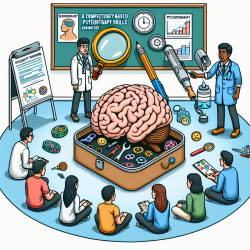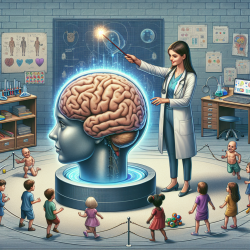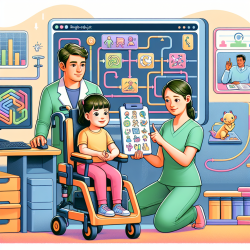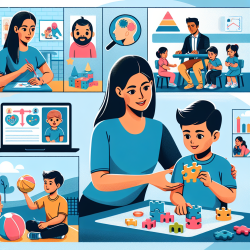Introduction
In the evolving landscape of medical education, the transition from a time-based to a competency-based model has significant implications for psychiatry residency training. The research article "Psychotherapy Training in a Competency-Based Medical Education Psychiatry Residency: A Proposal for a Practical and Socially Responsible Model" offers a compelling framework for enhancing psychotherapy training. This blog explores how practitioners can leverage these insights to improve their skills and outcomes for children in clinical settings.
The Need for Competency-Based Training
Competency-based medical education (CBME) emphasizes the acquisition of specific skills and competencies over a set period. This approach is particularly relevant in psychiatry, where psychotherapy remains a core intervention for various mental disorders. The Canadian Network for Mood and Anxiety Treatments (CANMAT) guidelines, for example, recommend cognitive behavioral therapy (CBT) as a first-line treatment for major depressive disorder (MDD).
However, access to psychotherapy services remains limited. The Mental Health Commission of Canada reports that only a minority of individuals with mental health concerns receive adequate support. This gap highlights the importance of training psychiatry residents in essential psychotherapy skills that can be applied across diverse clinical settings.
Proposed Training Model
The research proposes a balanced training model that integrates both didactic and experiential learning. This model emphasizes the application of psychotherapy skills in various clinical contexts, ensuring that residents can effectively address the needs of patients with severe mental illnesses.
- Core Competencies: The model identifies core psychotherapy competencies that all psychiatry residents should achieve. These competencies are based on the 'need' from a population burden perspective and 'applicability' across multiple settings.
- Experiential Learning: Residents gain hands-on experience through supervised practice, allowing them to apply psychotherapy skills in real-world scenarios. This approach fosters a deeper understanding of therapeutic relationships and enhances clinical decision-making.
- Flexibility and Customization: The model allows for customization, enabling residents to pursue additional training in specific modalities based on their interests and career goals.
Implications for Practitioners
For practitioners, implementing the outcomes of this research can lead to improved clinical skills and better patient outcomes. By focusing on competency-based training, practitioners can ensure that they are equipped with the necessary skills to provide effective psychotherapy interventions. This approach also supports the integration of psychotherapy skills into broader psychiatric care, enhancing the overall quality of mental health services.
Furthermore, practitioners are encouraged to engage in ongoing research and professional development to stay abreast of emerging evidence and best practices in psychotherapy. This commitment to continuous learning will not only benefit individual practitioners but also contribute to the advancement of the field as a whole.
Conclusion
The competency-based approach to psychotherapy training in psychiatry residency offers a practical and socially responsible model for developing essential clinical skills. By embracing this framework, practitioners can enhance their ability to provide high-quality care to children and other patients with mental health needs.
To read the original research paper, please follow this link: Psychotherapy Training in a Competency-Based Medical Education Psychiatry Residency: A Proposal for a Practical and Socially Responsible Model.










